NKU Holds 2025 Academic Conference on Digital Economy Development and Governance
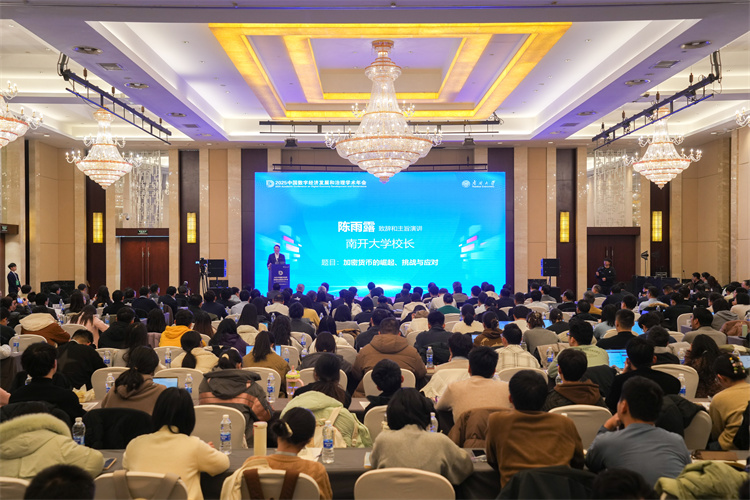
On February 22, 2025 Academic Conference on Digital Economy Development and Governance was held at Nankai University. Centered on the theme Artificial Intelligence, Digital Economy, and New Quality Productive Forces, it aimed to actively implement the strategy of accelerating the construction of a Cyber Powerhouse and a Digital China outlined in the report of the 20th CPC National Congress, and foster collaborative exploration of the academia and industry into the future development orientation of the digital economy. Around 40 experts, scholars, and institutional representatives gathered to deliberate on the development laws and theoretical frameworks of the digital economy.
Wang Xu, member of the Standing Committee of the CPC Tianjin Municipal Committee, Chen Yulu, president of Nankai University, and Professor Jiang Xiaojuan at the University of Chinese Academy of Social Sciences attended the opening ceremony and delivered speeches. The event also saw the presence of Mu Shengjun, governor of Hexi District, Tianjin; Lin Wei, president of Southwest University of Political Science & Law; Wei Jiang, president of Zhejiang University of Finance & Economics; Huang Yiping, dean of National School of Development at Peking University; Hong Yongmiao, dean of School of Economics and Management at University of Chinese Academy of Sciences; Tong Jiadong, former vice president of Nankai University; Chen Binkai, vice president of Central University of Finance and Economics; Zhang Ming, deputy director of Institute of Finance and Banking at the Chinese Academy of Social Sciences; Peng Wensheng, chief economist of CICC and head of CICC Global Institute as well as Xu Lin, chairman of China-U.S. Green Fund Management Co., Ltd. The opening ceremony was hosted by Sheng Bin, vice president of Nankai University.
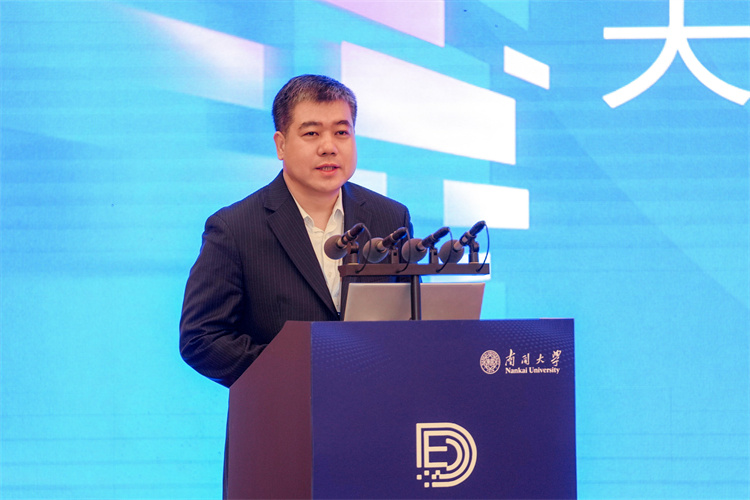
In his speech, Wang Xu pointed out that President Xi Jinping stressed that we should strive for being the first movers to take aggressive and practical measures in developing new quality productive forces during Xi’s inspection to Tianjin at the beginning of 2024. Digital economy is closely and profoundly related to new quality productive forces. The former provides strong technical support and innovation power for the latter. It is also the core driving force to promote the development of new quality productive forces. As the strategic pivot and advanced manufacturing R&D base for coordinated development of the Beijing-Tianjin-Hebei Region, Tianjin has always adhered to the guidance of Xi Jinping Thought on Socialism with Chinese Characteristics for a New Era, and thoroughly implemented the national strategic plan for the construction of a Digital China. It has overall promoted the layout of core industries of digital economy on the basis of building a city relying on manufacturing industry. In the 2025 Report on the Work of Tianjin Municipal Government, digital economy is clearly regarded as a major channel to promote the development of new quality productive forces. Wang expressed their expectation of in-depth exchanges and discussions among experts and scholars for greater contributions to the progress of Tianjin's digital economy industry and the innovative development of China's digital economy.
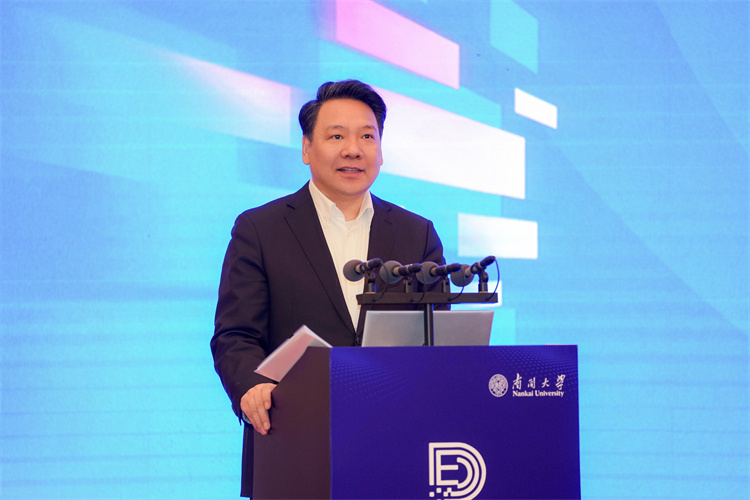
Chen Yulu stated in his address that Nankai University has vigorously promoted the profound integration of digital technologies and artificial intelligence with university education in response to new demands and challenges posed by the digital era to higher education. The university has established the College of Artificial Intelligence and the College of Cryptology and Cyber Science, while introducing new disciplines including cyberspace security, digital economy, cryptology, intelligent science and technology, digital and intelligent society, as well as journalism and communication. This has made Nankai University a pioneer among China’s higher education institutions to develop a complete talent cultivation system spanning undergraduate, master’s, and doctoral programs in digital economy. Nankai University has collaboratively established the Chinese Institute of New Generation Artificial Intelligence Development Strategies with the Chinese Academy of Engineering and the Tianjin Municipal People’s Government. It has also co-founded the Center for Digital Economy with the China Association for Science and Technology and the Davos Forum. The university has consecutively released a series of annual reports such as Digital Economy and China, Report on Industrial Development of China’s New Generation AI Technology, and Report on China’s Development of Digital Economy. The Economic Behavior and Policy Simulation Laboratory has been approved and listed as one of China’s first national key laboratories in philosophy and social sciences. The building of Digital Nankai is advancing rapidly, with the official launch of Nankai’s proprietary DeepSeek-based AI platform. Distinguished alumni including Zhang Yiming and Zhang Wenzhong have collaborated with Nankai’s academic teams on major research projects. In the future, Nankai University is looking forward to profound cooperation with experts to jointly chart a glorious future for China’s digital economy and intelligent governance.
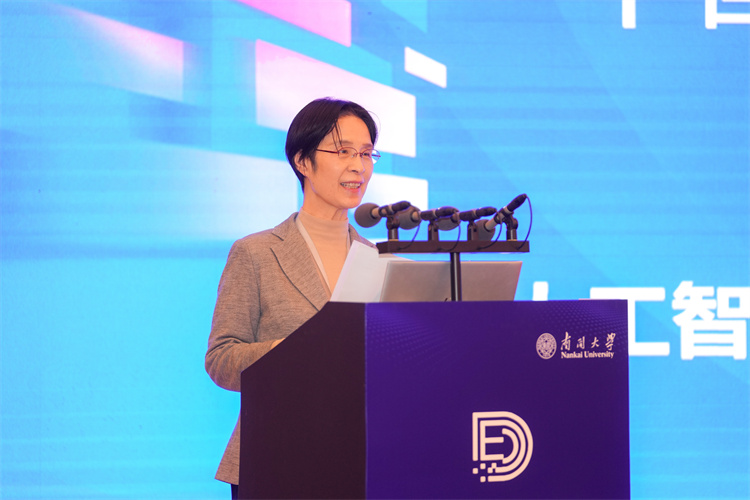
Jiang Xiaojuan stated that this conference is committed to advancing the enhancement of teaching and research in development and governance of China's digital economy. As a major player in digital development and artificial intelligence, China possesses abundant theoretical and practical innovations alongside fertile ground for academic exploration. Higher education institutions and academia should make substantial contributions to theoretical research, academic system construction, and talent cultivation. The era also calls for theoretical guidance. The conference's core mission is to gather academic strengths from domestic and international communities to establish an academic platform, cultivate an intellectual atmosphere, and foster an academic ecosystem. Through these efforts, it aims to work with experts in the digital economy to collaboratively elevate academic and theoretical standards of China's digital economy and governance; to push it to the world’s academic prominence; and to propose theoretically grounded suggestions for policies on challenges to the development and governance of China’s digital economy.
At the opening ceremony, Chen and Jiang respectively delivered keynote speeches titled The Rise, Challenges, and Responses of Cryptocurrency and Development and Governance of the Artificial Intelligence: What Are the Perspectives and Standards Based on Economics?
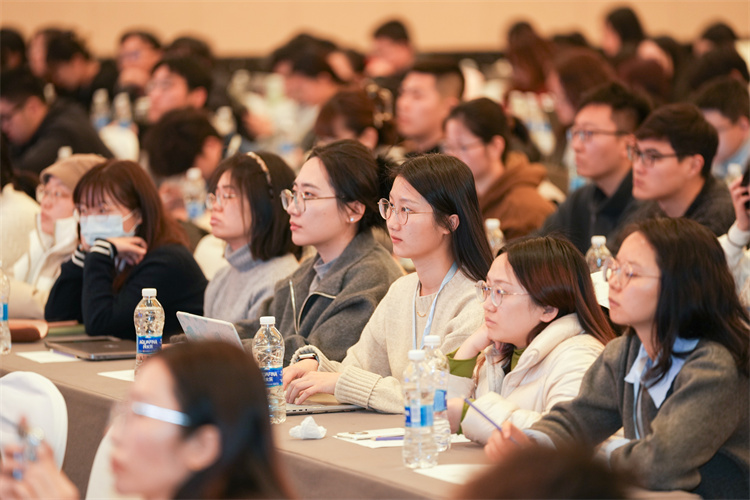
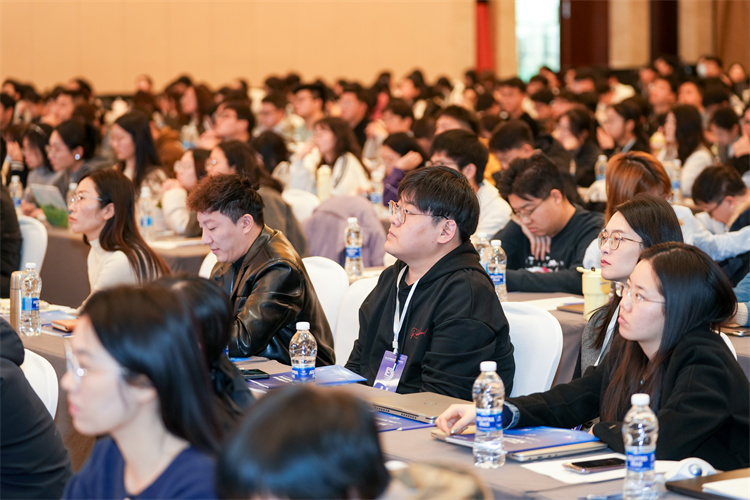
The conference featured three thematic sessions, where experts engaged in discussions on Artificial Intelligence, Digital Economy, and New Quality Productive Forces Digital Industry and Platform Economy, and Digital Finance and Trade.
According to information, co-organized by Nankai University’s Institute of Chinese Path to Modernization, and School of Economics, as well as the Philosophy and Social Sciences Laboratory of Ministry of Education – The Laboratory for Economic Behaviors and Policy Simulation, the conference was hosted by Nankai University.
Established during the Global Digital Economy Conference 2022, the Academic Conference on Digital Economy Development and Governance aims to serve as a pivotal platform and network for academic exchange of China’s digital economy, explore the construction of a self-independent knowledge system to this respect, and plan a new chapter for the development and governance of China’s digital economy.
(Edited and translated by Nankai News Team.)









